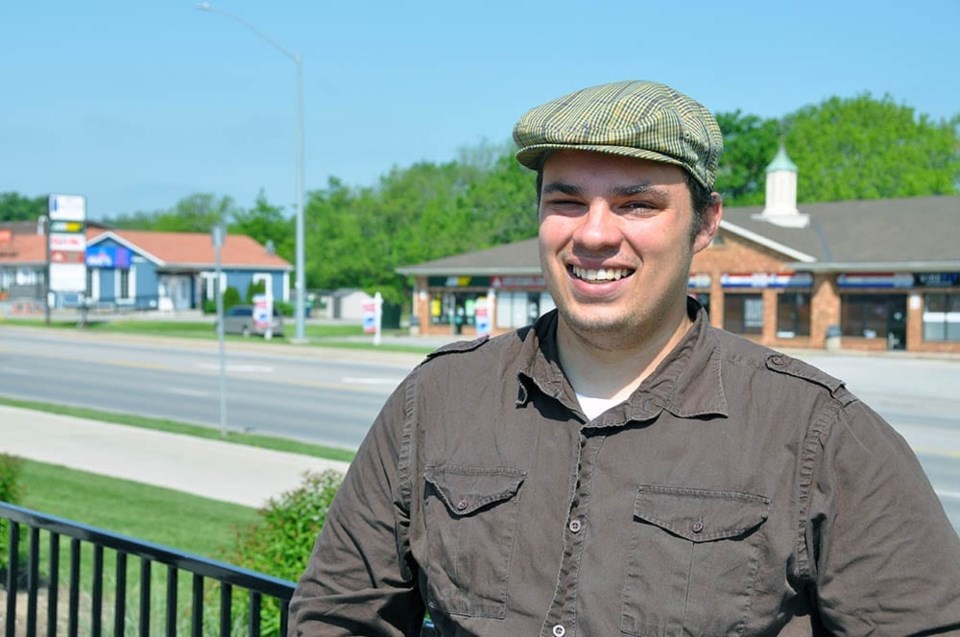Niagara’s mental health, homelessness, and addiction problems will be front and centre on March 30, as local advocate Steven Soos leads a panel at his third town hall meeting to address these issues.
The event is scheduled for 2 PM in the Kinsmen Room at the Meridian Community Centre. Soos said that all are welcome to attend, and are encouraged to ask questions about the state of emergency recently invoked by the Region.
The panelists assembled include Soos, Niagara Regional Councillor for Niagara Falls Joyce Morocco (who also co-chairs Niagara Region’s Social Services and Public Health Committee), Pelham’s Mayor Marvin Junkin, Pelham Town Councillor Wayne Olson, and Professor Miles Howe, who is an Assistant Professor of Critical Criminology in the Sociology Department at Brock University.
“This year's town hall meeting will be very significant, with the recent passing of the Niagara-wide state of emergency on mental health, homelessness and addiction on February 23,” said Soos. “I was happy to choose Pelham as the location for this year’s event, as I have found incredible support for the cause from Mayor Marvin Junkin, who seconded the motion the first time it went to the Region. I must also mention Councillor Wayne Olson, who has fought incredibly hard for rural broadband internet, a service which keeps people connected who may be dealing with mental health issues pertaining to isolation. Olson and Junkin have been loyal to the cause of tackling these societal ills from the beginning. Voices from Niagara West have been essential in the state of emergency declaration, and I was proud to have councils from Grimsby, Pelham, Wainfleet, and West Lincoln unanimously supporting the request.”
Soos sent a letter to Ontario Premier Doug Ford on March 12, asking for his support of the emergency declaration.
“Niagara Centre MPP Jeff Burch has asked in the legislature if this government will support Niagara’s state of emergency,” wrote Soos. “It is the responsibility of the province to respond to the municipality declaring. In addition to Niagara Regional Council supporting this emergency, 11 of Niagara’s 12 local municipalities also unanimously supported the request.”
Soos quoted statistics to buttress his case.
“In 2021, there were 165 confirmed opioid deaths [primarily fentanyl] in Niagara, with 665 homeless residents, including 121 children,” he said. “Niagara has a higher suicide rate than the provincial average, and twice the province average of mental health hospitalizations. The Canadian economy loses $40 to $50 billion a year in lost labour productivity due to mental health issues, which is reflected in our criminal justice and healthcare systems.”
Mayor Junkin indicated that he was looking forward to participating in the town hall meeting.
“What is really needed is federal and provincial money to help our frontline workers cope with this crisis,” Junkin said. “The wait times for gaining access to the Region’s mental health workers is totally unacceptable, and with an estimated 175,000 Canadians now considered homeless nationwide, it has become quite obvious that whatever we have been doing as a country over the last several years is not enough. New strategies and new money is needed if we are to make a meaningful difference to our homeless numbers.”
Pelham does not have the volume of homeless citizens as do larger centres in the region like Welland, St. Catharines, and Niagara Falls, but Soos said that “housing affordability is an important topic, even in Pelham, where there are real challenges for young people and seniors.”
Olson said that he has “always been energized and invigorated by people who struggle. Steve [Soos] has certainly worked very hard to keep mental health on the agenda. I’m proud of his accomplishments and his persistence in creating an inclusive and multigenerational event. Intergenerational social movements promote deeper understanding and respect between generations, and they help to create cohesive communities.”
The high cost of living, coupled with a general downturn in well-being as social networks shrank during the past three years of the pandemic, has Olson worried.
“I’m quite concerned about our growing community of aging family caregivers,” he said. “We know that caregivers are at a higher risk of physical decline and psychological distress, with a resultant decline in function and enjoyment of life.”
Niagara Falls Councillor Joyce Morocco said she is passionate about the issues of homelessness, drug addiction, and mental health, and has been championing the call for more resources to deal with the problem.
“It is important for the provincial government to understand that the region is maxed out financially, and we desperately require support to combat this problem.”
Morocco agreed to participate in the town hall forum because “it’s important to connect with the public and listen to their personal stories and comments.”
Miles Howe, the Brock sociology professor, has had Soos as a guest speaker in one of his fourth-year classes at Brock, and said that, “I'm definitely lending my voice to this cause.” Howe sees the Region’s emergency declaration as more than a symbolic gesture.
“I think this situation creates an opportunity to really think outside the box, and consider new ideas,” he said. “I see a lot of potential in the reallocation of existing funding streams that might work for more long-term resolution to these issues. Toronto and Ottawa are cities that have implemented pilot projects in which dispatchers reroute mental health emergencies away from uniformed police officers, and towards crisis support workers. This model is a far more economically viable way of addressing mental health issues.”
Howe said that it also important to have the business communities involved.
“The notion that chambers of commerce are immune from these issues is completely untrue,” he said. “Statistically, we know that drug overdoses are frequently a problem among young males, and the lost labor productivity is significant.”
Soos, who has acknowledged difficulties with his own personal mental health, said the town hall event will hopefully generate a range of recommendations which can be passed on to all levels of government.



